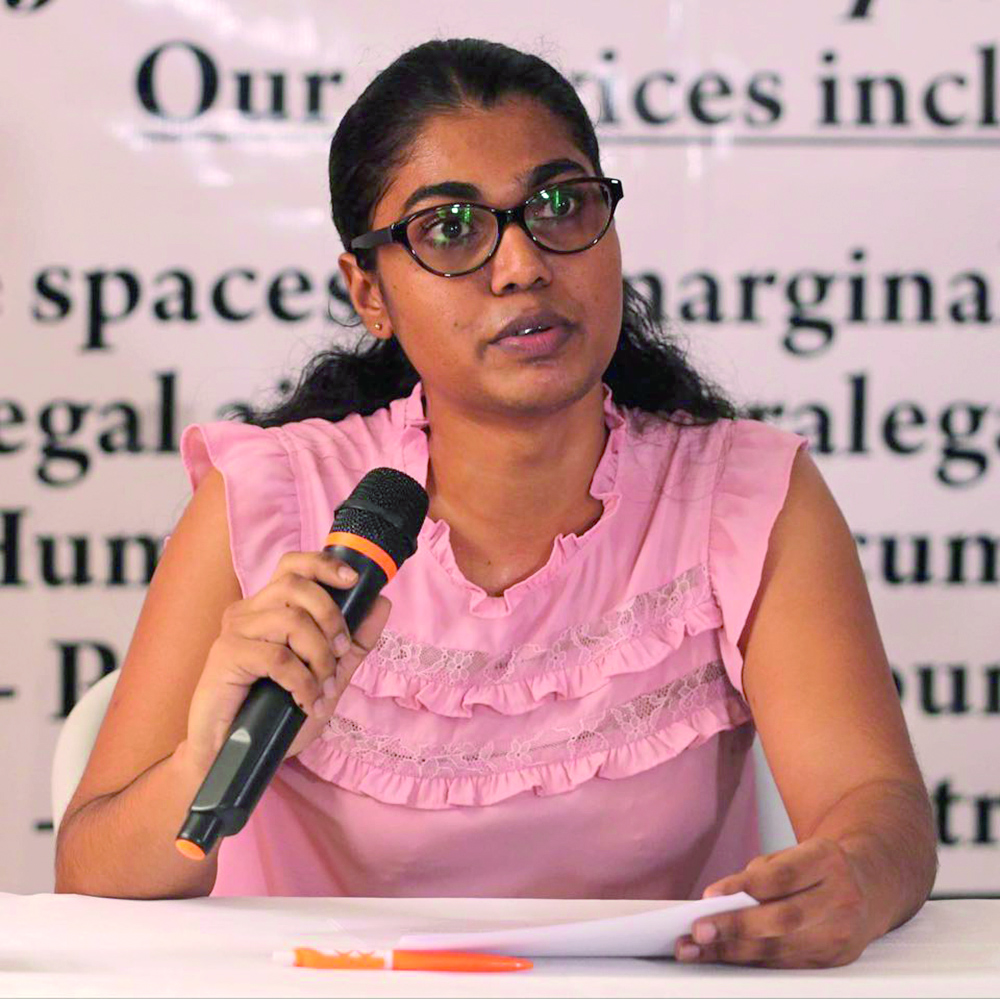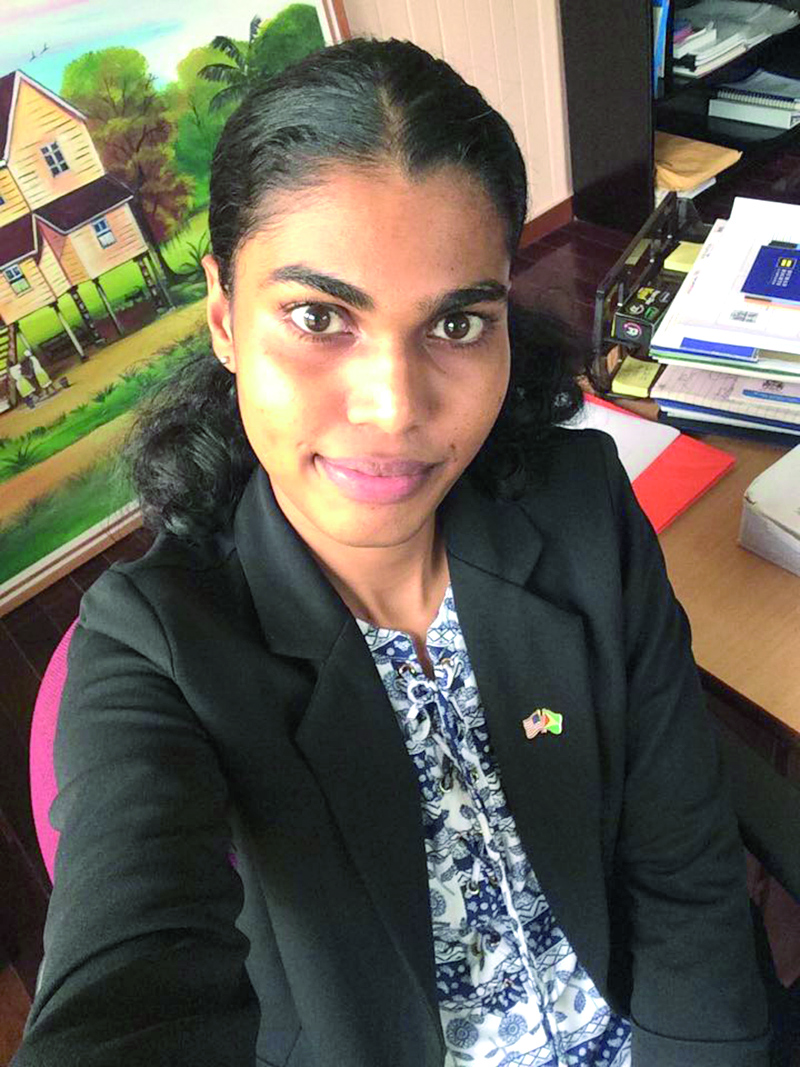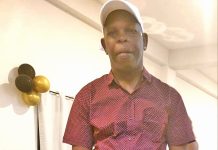By Lakhram Bhagirat
The trans community in Guyana is unjustly discriminated against. They are mocked for revealing their true selves as well as stereotyped as only being worthy of doing sex work or low-level jobs. The trans community is painted with a broad brush as being uneducated and rambunctious.
Those stereotypes are far from the truth. The fact remains that trans people in Guyana undergo immense discrimination and are starved of the opportunities to excel. The trans community quite often is reduced to economic dependency.
Trans woman Alessandra Hereman has been working with her fellow trans brothers and sisters in an effort to bring awareness to the issues this vulnerable community faces on a daily basis. Hereman is presently employed with the Guyana Trans United (GTU) — the only registered trans-led Non-Governmental Organisation. The GTU is involved in gender and social justice work.
Hereman, in sharing her journey as a trans woman, told the Sunday Times that she grew up within a supportive family. From a young age when she began exhibiting gender non -conformity behaviours, her family never made her feel as though she was different.

Coming from the Ancient County of Berbice meant that she was not exposed to most of the challenges facing trans people in Guyana and particularly in the city. She began recognising that she was different from the other children when she was in primary school. Hereman would often be teased and taunted by her fellow students because of the fact she spoke, walked, and acted “differently”.
However, things took a drastic turn when she moved to secondary school and began experiencing gender dysphoria – which is the condition of identifying as the opposite of one’s assigned sex.
“But it wasn’t until a few years after high school that I actually understood what my experiences meant, that is, I was a trans person – someone whose assigned gender is incongruent from [A1] their internal or lived gender experience. This wasn’t a walk in the park, though, I have had moments in my life where I struggled to make sense of my experiences which also included denying them. After understanding and making sense of who I am, I made the decision to affirm my gender. For a lot of trans people, gender transitioning or affirmation is a life-long journey and comes in various forms including medical-hormone therapy and non-medical (name change) transitioning,” she recounted.
Hereman knew that the route she was taking would not be an easy one, but she was prepared to fight the good fight. As a trans woman, she experienced endless discrimination, verbal assaults, and even harassment on the street. However, she was not prepared for the level of discrimination she would experience when she applied for a government job.
Recounting the experience, Hereman says that she saw an advertisement for a job she was qualified for, so she applied. She was called for an interview, but that interview turned into a gender interrogation session after the interviewing panel became aware of the fact that she was trans. They inquired about her name change and even made degrading remarks to her.
“They made remarks like ‘we can spice things up a bit by hiring two males, two females, and a trans…and you can wear your heels and stockings and come to work…we will install a washroom for trans.’ They even mentioned that because it was a high-profile job that requires confidentiality I cannot go at the Cathedral.”
Hereman had no idea what the interviewing panel meant when they told her she could not go to the ‘Cathedral’. She took this to mean that she was now forbidden from visiting the place of worship, but little did she know that she was being insulted at the time. Later, she would find out from a colleague that the remark meant that they considered her to be a sex worker since the ‘Cathedral’ is a hub for sex workers.
She notes that when she looks back at that incident, she now realises that she was stereotyped and discriminated against based on her gender.
For Hereman, it is experiencing such as those that lead the trans community to question their very existence as human beings.
The GTU and the Society Against Sexual Orientation Discrimination (SASOD) recently conducted a study which just reinforced what almost every trans person knows – that many of them are dealing with family rejection, loss of formal education, unemployment, and are at an increased risk for violence and victimisation.
The GTU is Guyana’s only trans representative body and because of that, the trans movement is somewhat centralised. However, according to Hereman, the movement is evolving with various trans organising across the country.
“The trans community engages in activism especially around challenging the cross-dressing law which heightened the visibility of trans-Guyanese existence. But while we have been gaining increased visibility in the media, the community still suffers from the lack of economic and social resources. We don’t have many trans people completing high school because of transphobic bullying and lack of family support.”
She notes that more than often, trans people are forced to discontinue their education because of societal pressures, discrimination, and lack of familial support.
“Trans women don’t drop out of school, because they are not smart, they drop out of school because they are made to feel they don’t belong. The lack of formal qualification means it is harder for trans people to gain employment in the formal sector which results in many trans women engaging in domestic, part-time employment, and street-based sex work. Engaging in street-based sex work or domestic work, both of which provide subsistence income, increases trans women’s risk for violence and abuse because of economic dependency,” she posited.
Hereman is of the view that awareness can happen at the State and policy level and at the community level.
“A good place to start is by the State and State agencies recognising that trans people are part of Guyanese society. We have the Women’s and Gender Equality Commission. Historically, people who transgress gender have contributed much to feminist theory and praxis, because trans people’s existence demonstrates that gender is a social construct and is not restricted by our sexed body classification – a fundamental feminist epistemology that has been used during the feminist movement to argue that biology is not destiny and a woman’s place is not in the home simply because she is assigned female.
“If the mantra of the Women’s and Gender Equality Commission is the liberation of people from gendered discrimination, gender inequality, and gender, then that would be an appropriate place where the awareness should be coming from. Also, we have the National Gender Policy. I am not sure what the status on this is, but it would be nice to know if trans people as a gender minority are reflected in such a policy and what recommendations are proposed to address some of the challenges trans people face because of their gender status,” Hereman said.
At the grassroots level, community-based organisations like the GTU continue with education and sensitisation workshops and training around gender and sexuality diversity. However, one can only expect significant change when the legal framework and the cultural environment are working concomitantly for a paradigm shift.
The challenges continue to shape how Hereman sees the trans community, and its marginalisation makes her even hungrier for change. She has a strong support network with people within and outside of the LGBTQ+ community. In addition to that, she also facilitates gender and sexuality workshops which give her an avenue to speak more of these challenges.
Through her work, Hereman has been able to meet people who admit to having biases against the LGBTQ+ community, but she has also been able to shape their thoughts and extract their willingness to work on their attitude and behaviour.
“I know at times people who struggle with gender incongruent may feel lost or afraid or may even deny their experience, but it is always better to live your authentic self than to live a life of lie for society’s approval. This is easier said than done, but there is strength in choosing to live your life unapologetically,” she advises.











